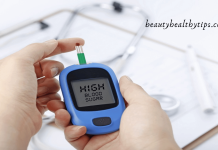Having a mobile app that helps you monitor your health is a good idea, but it is also important to have mobile apps that are secure and easy to use. Here are five features of the future healthcare mobile apps that you will want to look for.
Highly Integrated And Connected With Each Other
Table of Contents
Creating highly integrated and connected healthcare mobile apps could make life easier for patients and doctors. They can make it easy for people to track their health, make appointments, and even get medical care from the comfort of their own homes. They can also help doctors better manage their practices.
Telemedicine and wearable technologies have also risen in popularity. These can gather important health information, measure vital parameters, and provide better diagnosis. They also reduce hospital expenses, staff downtime, and keep confidential patient data secure.
Healthcare mobile apps have become essential in helping doctors gain immediate access to patient information. They can also track and record electronic health records, insurance claims, hospital stays, and other medical services.
Mobile apps can also help with wellness planning, which can help patients achieve their personal health goals. They also make it easier for patients to take part in wellness programs and encourage healthy lifestyles.
Healthcare Data – Secured
Despite the growing popularity of mobile health apps, the safety of sensitive healthcare data is still not well understood. This is a cause of concern for consumers and health care providers alike.
Healthcare mobile apps should be built with an architecture that prevents unauthorized access and data breaches. To achieve this, developers need to ensure that their applications are HIPAA compliant. This includes the need to use appropriate cryptographic techniques.
In addition to HIPAA compliance, developers must also make sure that their mobile apps adhere to other privacy and security laws. This is especially true for apps that interact with other third-party services.
Privacy and security regulations also vary among healthcare applications. For example, an app that monitors heart activity may not be subject to HIPAA. However, it could be subject to other national or international regulations.
Enhanced With High-End Technologies
Enhanced with high-end technologies, healthcare mobile apps are changing the way healthcare facilities provide care. They are making record-sharing easier and automating backend operations. They are also helping healthcare facilities keep confidential patient data safe. But, there are many challenges with healthcare mobile apps.
Some of the challenges include cybersecurity concerns and massive patient data. There are also several regulations that govern mHealth. These include HITECH and FDA guidance. In addition, healthcare facilities may be using outdated software solutions. To comply with these regulations, mHealth publishers must use a tech stack that includes high-end technologies.
Healthcare mobile apps need multiple integrations to avoid cybersecurity concerns and ensure user engagement. These integrations also help to reduce costs and mitigate risks. The publishers of future mobile apps will integrate solutions through APIs and outsource data processing to reduce their costs. They will also share the costs for large-scale projects. This will result in a symbiotic relationship between publishers.
Extended Across The Globe
Using mobile technology to improve healthcare has its perks. For instance, it can help doctors to provide better patient care. It also allows patients to get health information from their mobile devices, including blood reports and X-Rays. Similarly, it helps to improve communication between doctors and patients. It can also help to increase medication adherence. Lastly, it can help to improve the health of the general population.
As healthcare becomes more digital, it’s important to find the mobile apps that have the most potential. While some of these apps will be more advanced than others, it’s important to choose the ones that can provide the most value for money. For example, a healthcare mobile app that combines multiple sources of information into a single, easily searchable database will allow users to access information on prescriptions, medication, health reports, and more. It may also be able to help patients schedule appointments, monitor side effects of their medications, and more.











